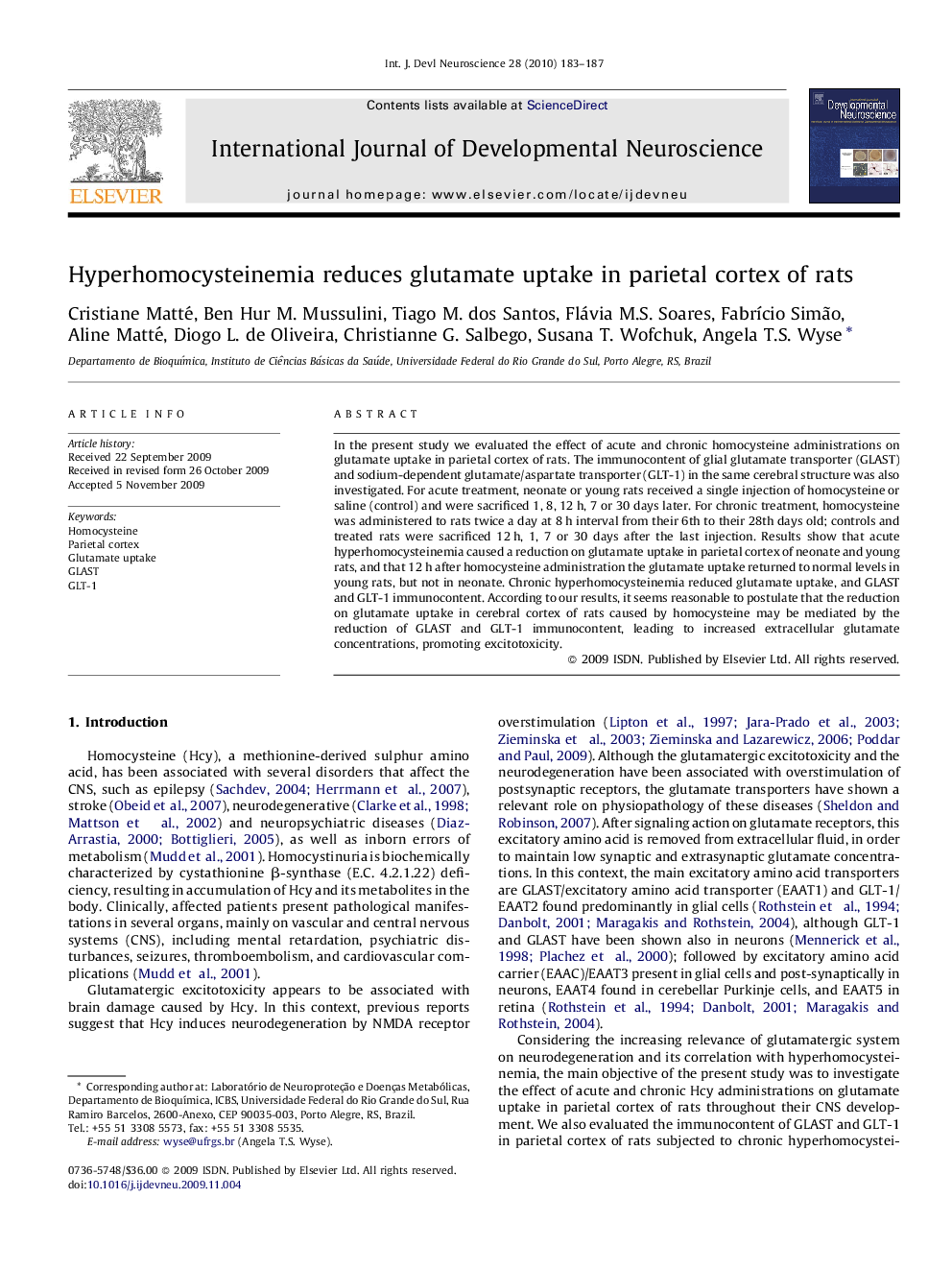| Article ID | Journal | Published Year | Pages | File Type |
|---|---|---|---|---|
| 2786768 | International Journal of Developmental Neuroscience | 2010 | 5 Pages |
In the present study we evaluated the effect of acute and chronic homocysteine administrations on glutamate uptake in parietal cortex of rats. The immunocontent of glial glutamate transporter (GLAST) and sodium-dependent glutamate/aspartate transporter (GLT-1) in the same cerebral structure was also investigated. For acute treatment, neonate or young rats received a single injection of homocysteine or saline (control) and were sacrificed 1, 8, 12 h, 7 or 30 days later. For chronic treatment, homocysteine was administered to rats twice a day at 8 h interval from their 6th to their 28th days old; controls and treated rats were sacrificed 12 h, 1, 7 or 30 days after the last injection. Results show that acute hyperhomocysteinemia caused a reduction on glutamate uptake in parietal cortex of neonate and young rats, and that 12 h after homocysteine administration the glutamate uptake returned to normal levels in young rats, but not in neonate. Chronic hyperhomocysteinemia reduced glutamate uptake, and GLAST and GLT-1 immunocontent. According to our results, it seems reasonable to postulate that the reduction on glutamate uptake in cerebral cortex of rats caused by homocysteine may be mediated by the reduction of GLAST and GLT-1 immunocontent, leading to increased extracellular glutamate concentrations, promoting excitotoxicity.
